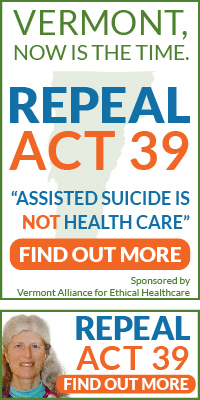New Jersey abolished the death penalty in 2007, after a commission found that decisions about when to impose it were never be made in an objective way. Such decisions are always subjective. Furthermore, the “protections” that a state establishes in an attempt to insure that innocent people are not executed are as unworkable as they are futile. This is obvious from the fact that the appeals process can take more time than the prisoner had even lived before being sentenced.
Writing in the Trenton Times on November 29, lawyer and advocate for people with disabilities H. John Witman asserts that assisted suicide should remain illegal for the same reasons the state decided to make executions illegal: error cannot be eliminated, and regulatory or legislative attempts to eliminate error make implementation unworkable.
True Dignity makes the further observation that the finality of the death penalty and assisted suicide makes their susceptibility to error intolerable in a way that is different from almost any other law. For example, if a jury makes an error in sending a person to prison, that error can be rectified; if it makes an error that leads to his execution, there is no remedy. If a doctor prescribes an antibiotic that does not work, he can give the person another in most cases; if he prescribes a lethal dose to a person who he does not detect is being pressured, there is no remedy.
Witman writes, “The state can never know what subtle coercions make one choose to take one’s own life, or worse, cause one to decide that another’s life is not worth living. The state, therefore, can never be certain that sufficient protections have been established. . It can only be certain that the protections it has established are unworkable.”
Read the whole article here: http://noassistedsuicidenj.org/what-people-are-saying/69-assisted-suicide-will-not-work-in-new-jersey

